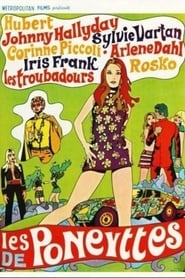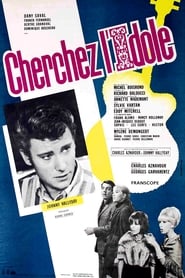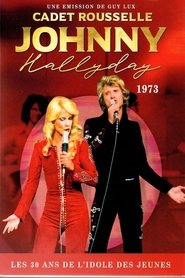Bruno Coquatrix (5 August 1910, Ronchin, Nord – 1 April 1979) was a French music producer, the owner and manager of the Olympia Hall in Paris from 1954 until his death in 1979.
Coquatrix was first known as a song and music writer. He wrote over 300 songs, including Mon ange (1940); Dans un coin de mon pays (1940); Clopin-clopant (1947); Cheveux dans le vent (1949), as well as some operettas. He was also an impresario, representing Jacques Pills and Lucienne Boyer, among others.
He managed the variety theatre Bobino before he took over the Olympia Hall, Europe's biggest music hall in 1954. In 1956, during a "tomorrow's number 1" audition at the Olympia, Coquatrix, Lucien Morrisse and Eddie Barclay discovered the unknown cabaret singer Dalida. He then staged all the era's celebrities, including Georges Brassens, Jacques Brel, Gilbert Bécaud, Ewa Demarczyk, Johnny Hallyday, Violetta Villas, Édith Piaf, Annie Cordy, Charles Aznavour, Mireille Mathieu, Yves Montand.
Bruno Coquatrix co-founded a records company, the Disques Versailles.
Bruno Coquatrix was the director of the casino of Cabourg (Calvados) in the 1950s, and the mayor of Cabourg from 1971 until his death in 1979. His mandate as Mayor of Cabourg was focused on the development of tourism and real estate, and the growth of Cabourg's sister cities (+11 during his mandate).
Coquatrix was married to Paulette Coquatrix.
He was the best man of Henri Betti in 1949 and André Hornez in 1963 who were the authors of C'est si bon. Coquatrix was buried in the Père Lachaise Cemetery (division 96). In November 2010, the newly-named street "Rue Bruno Coquatrix" was inaugurated in Paris next to the Olympia Hall. In Calbourg where he was Mayor, the downtown square, "Place Bruno Coquatrix", was named after him, and a "Bruno Coquatrix Stèle" stands in the middle of the square.
Source: Article "Bruno Coquatrix" from Wikipedia in English, licensed under CC-BY-SA 3.0.
Coquatrix was first known as a song and music writer. He wrote over 300 songs, including Mon ange (1940); Dans un coin de mon pays (1940); Clopin-clopant (1947); Cheveux dans le vent (1949), as well as some operettas. He was also an impresario, representing Jacques Pills and Lucienne Boyer, among others.
He managed the variety theatre Bobino before he took over the Olympia Hall, Europe's biggest music hall in 1954. In 1956, during a "tomorrow's number 1" audition at the Olympia, Coquatrix, Lucien Morrisse and Eddie Barclay discovered the unknown cabaret singer Dalida. He then staged all the era's celebrities, including Georges Brassens, Jacques Brel, Gilbert Bécaud, Ewa Demarczyk, Johnny Hallyday, Violetta Villas, Édith Piaf, Annie Cordy, Charles Aznavour, Mireille Mathieu, Yves Montand.
Bruno Coquatrix co-founded a records company, the Disques Versailles.
Bruno Coquatrix was the director of the casino of Cabourg (Calvados) in the 1950s, and the mayor of Cabourg from 1971 until his death in 1979. His mandate as Mayor of Cabourg was focused on the development of tourism and real estate, and the growth of Cabourg's sister cities (+11 during his mandate).
Coquatrix was married to Paulette Coquatrix.
He was the best man of Henri Betti in 1949 and André Hornez in 1963 who were the authors of C'est si bon. Coquatrix was buried in the Père Lachaise Cemetery (division 96). In November 2010, the newly-named street "Rue Bruno Coquatrix" was inaugurated in Paris next to the Olympia Hall. In Calbourg where he was Mayor, the downtown square, "Place Bruno Coquatrix", was named after him, and a "Bruno Coquatrix Stèle" stands in the middle of the square.
Source: Article "Bruno Coquatrix" from Wikipedia in English, licensed under CC-BY-SA 3.0.
Show more expand_more
keyboard_double_arrow_down





